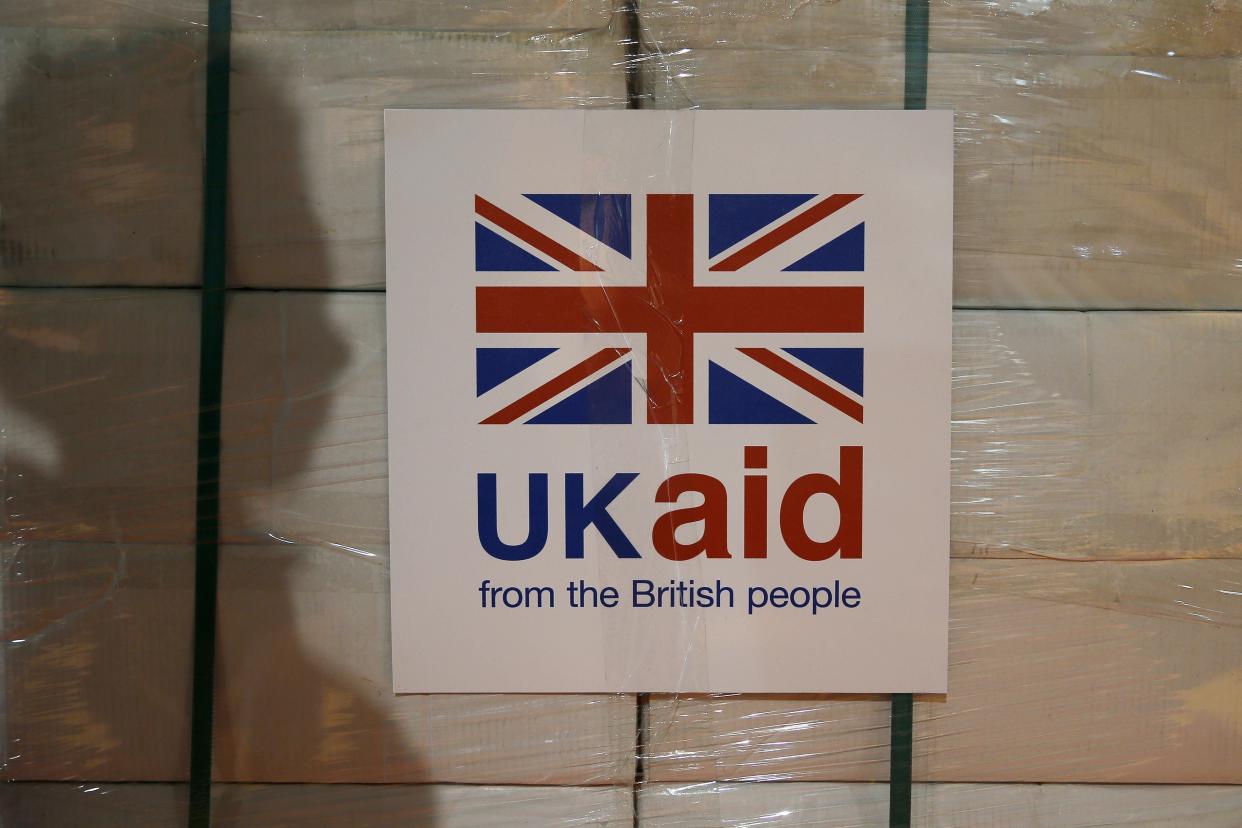Boris Johnson’s foreign aid cuts have caused deep unhappiness in both Whitehall and Westminster

UK aid provides soft power overseas, say Tory rebels
(PA)- Oops!Something went wrong.Please try again later.
- Oops!Something went wrong.Please try again later.
Boris Johnson’s government has avoided, on procedural grounds, a near-certain Commons defeat on aid cuts to the poorest of the world. But what has unfolded is sad and shameful in the week “Global Britain” intends to showcase international leadership as it hosts the G7 summit.
As the leaders of the most affluent nations gather in Cornwall, with one of the key themes urgent help for the developing world devastated by the coronavirus pandemic, Britain will be the only member of the group reducing its aid budget this year.
The decision to slash aid from 0.7 per cent to 0.5 per cent of gross national income – a reduction of just under £4bn, in breach of the Conservative election manifesto – led to a rebellion by 30 Tory MPs. It was condemned by former prime ministers, Tory and Labour, and appeals from the head of the UN’s humanitarian affairs and leading charities to reverse the decision.
It becomes clear from speaking to officials in Whitehall that there is deep unhappiness about what is happening. The Foreign Office, now also comprising the former Department for International Development, may be publicly stressing that Britain will still spend £10bn in alleviating poverty and climate change — but it is also pressing hard, behind the scenes, for the funding to be restored.
A number of these officials feel that “people around” Mr Johnson are convinced that cutting aid is popular with voters and are unable, or unwilling, to consider the reputational damage to Britain, let alone the harm the cuts will inflict on aid desperately needed aid projects.
A senior diplomat, who had served in north and east Africa said: “It seems these people cannot see past domestic politics ... this is odd for a government with such a [parliamentary] majority and doing so well in the polls.
“Leaving aside the morality of what’s happening, they don’t seem to grasp the soft power gains to this country that international aid brings.”
David Davis, the former Brexit secretary, wanted to remind people that Britain was the only G7 member planning an aid cut, and held that what the government was doing was unlawful as well as immoral.
“The government, if it wanted to do this, should have brought it to the House of Commons and said, ‘this is in our manifesto but the duress we’re facing now means we have to do this’ and so ask the house to approve it. It didn’t”, he told BBC Radio 4’s Today programme ahead of speaker Lindsay Hoyle’s ruling that blocked the vote.
“The reason it didn’t was because the majority of the house doesn’t agree with it ... and I’m afraid that that’s frankly, in my judgement, a morally poor position for the government.”
Neil Parish, the Conservative chair of environment, food and rural affairs committee, wanted to point out: “World leaders are about to arrive in Cornwall for the G7, and Cop26 [climate conference] is just a few months away, but instead of displaying all we’ve achieved when it comes to climate and global health, we’re undermining our own work and disregarding a core manifesto commitment.”
Among the world leaders Boris Johnson will be meeting in Cornwall are those who had boosted aid spending in the last year in response to desperate hardship caused by the pandemic.
After years of reductions under President Trump, USAID will receive an year-on-year increase of $5.4bn (£3.8bn) from the Biden administration. In Germany, Angela Merkel’s government spent $28.4 billion in 2020 in aid, an increase of 14 per cent over the previous 12 months in real terms. The Japanese government of Yoshihide Suga spent $15.9bn, a three per cent rise on the previous year. French overseas assistance under Emmanuel Macron has risen to £10.7bn.
The rebel amendment that sought to restore British aid spending to 0.7 per cent was included in a bill about the UK’s new science agency. Hoyle ruled it was inadmissible, but also called on the government to allow MPs an “effective” vote on the issue.
One former minister backing the amendment said that the rebel amendment would be reintroduced “at the next possible opportunity ... all this does is delay the inevitable. They know we have the numbers.”
The charities reacted to failure of the vote with dismay, Oxfam saying the UK was preparing for the G7 meeting by “abandoning” the poorest.
As Tories such as David Davis and former development secretary Andrew Mitchell have pointed out, the most vulnerable will be hit by the cuts and children will die because of the actions of this government.
Read More
Why Boris Johnson is right to want to ditch the term ‘special relationship’
Inside Politics: Tory rebels ‘optimistic’ they can reverse aid cuts
Why it’s wrong to claim the Conservatives are now the party of the working class

